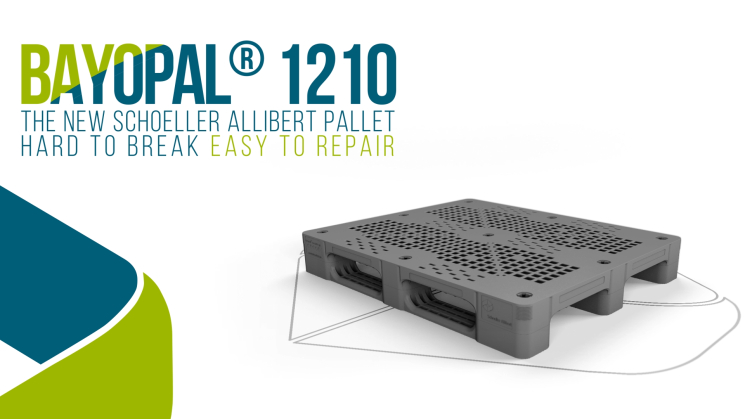Convert your single-use wooden pallets to durable high-performance plastic!
Its never been more important for the commercial supply chain to up its game in terms of sustainability, transparency and performance which makes it an ideal time to explore the advantages of durable plastic transit packaging.
There is a clear focus on supply chain management, with priorities that include reducing carbon output, meeting new sustainability standards, optimising space, improving efficiency and speed and creating a better linked – and more intelligent – supply chain.
With these at the top of every supply chain wish list, it’s clear that making the switch from wood-based to plastic intralogistics packaging is on the agenda for brands of every size.
Historically, wood has been the most common material for pallets to store and move inventory through the supply chain. However, due to increased environmental awareness and responsibility, this is now being examined and re-evaluated. Over a period of around 25 years, plastic pallets have surged to the forefront and are now being more widely used, thanks to their reusability, durability and 100% recyclability.
Here are the 5 top reasons to convert from wooden pallets to plastic circular solutions
Reducing waste
Most wooden pallets are single-use, which can create a problematic linear waste stream, used once and thrown away. Recycling is an option, but busy warehouses tend to overlook this – particularly with the high volumes required in today’s competitive supply chains. Instead, hard-wearing plastic can not only extend the lifespan of equipment but is simpler and quicker to recycle.
Consistent performance
Most wooden pallets are made for single-use, and even when they are reused. They degrade over time, which results in their loading capacity diminishing through regular use. The overall functionality of the pallet is reduced and may compromise performance.
Reusable plastic pallets are designed to perform for their entire lifespan, and are produced to withstand the test of time. Even in the harshest operating environments, they will still maintain a consistent load capacity and performance.
Repairability & versatility
A common misconception of plastic solutions is that due to material complexity, they cannot be repaired. However, since the launch of BaYoPal® in 2019, the Schoeller Allibert range has included a repairable plastic pallet.
There are also operational advantages to plastic that are not present with wooden pallets. Some products, such as Retenpal 2.0, are designed with crucial space-saving functionality built in. This results in fewer shipping trips and costs, but also in a lower carbon footprint. Typically, wooden pallets are only stackable.
 | |
Safety first
In a fast-paced manufacturing environment, safety for employees and operators is paramount. Wooden pallets can hide splinters, fungus, bacteria and even rusty nails, all of which can present a hazard for employees.
Reusable plastic pallets do not have these safety issues and are also much safer to stack. Thanks to the uniform shapes of plastic pallets and their stackable and rackable qualities, the freight loading can be optimised simply and effectively. In addition, it is extremely difficult to sterilise wooden pallets, whereas this is easy with plastic pallets.
Longer service life span
One of the biggest differences lies in lifespan - wooden pallets have a limited service life where plastic alternatives can deliver across a much greater length of time. Generally speaking, the service life of wooden pallets is about 10 trips before it starts to splinter or fall apart. In contrast, plastic pallets perform an average of 250 trips before they may need to be replaced.
Conclusion
Every competitive business knows the value of optimising the supply chain, and the role of transit packaging, including pallets, containers and IBCs. As manufacturers weigh all their options, there is an extremely strong case for switching from wooden pallets to high performance plastic alternatives.
The evidence supporting the use of plastic over wooden pallets is clear and has already led to more companies implementing long term sustainability changes in their pallet program. While plastic packaging has a higher initial price point, this is easily offset by longer life cycles, reduced risk of injury and contamination, and the cyclical nature of its end of life recovery.
Further strengthening the argument for businesses is the fact that with Schoeller Alliber, plastic pallets can be rented rather than bought, which makes it a versatile option for supply chain operations.
The plastic pallet range from Schoeller Allibert includes:
- autor:
- Schoeller Allibert Czech Republic s.r.o.






















